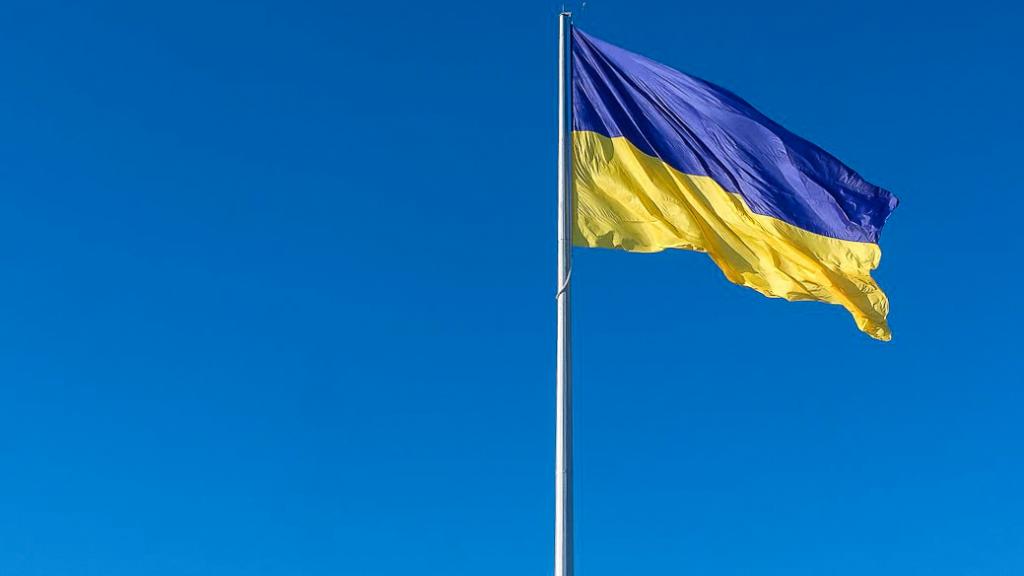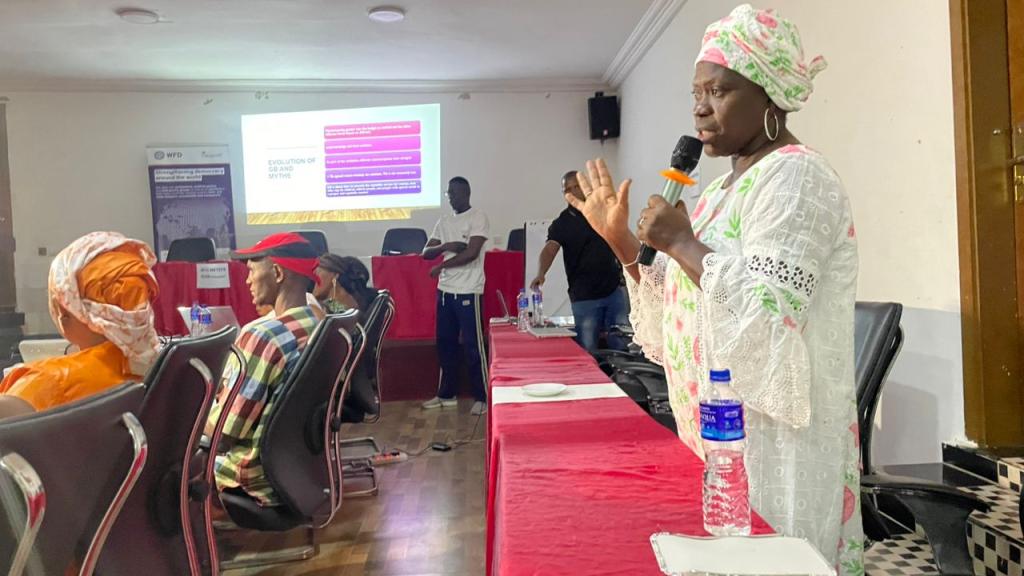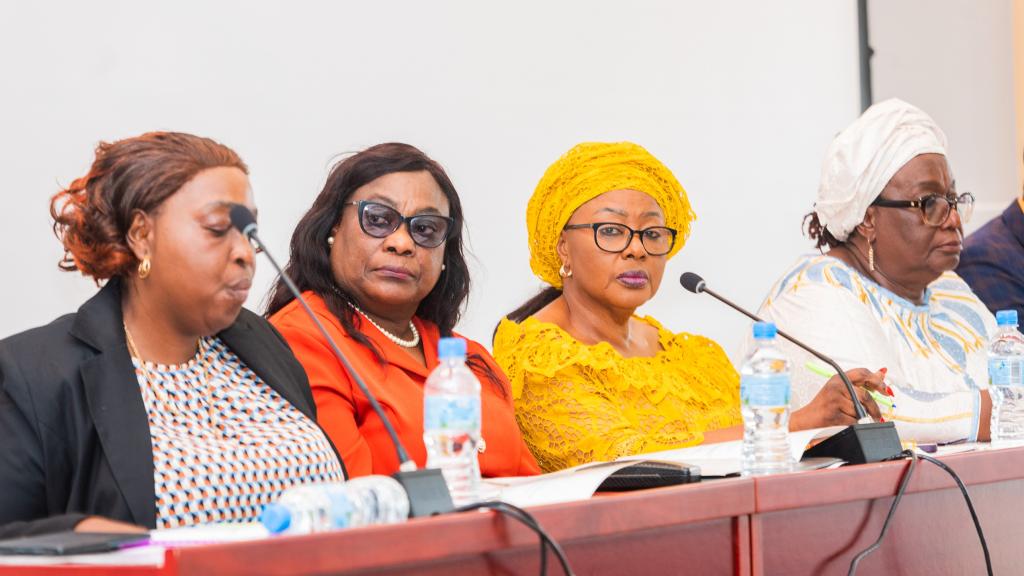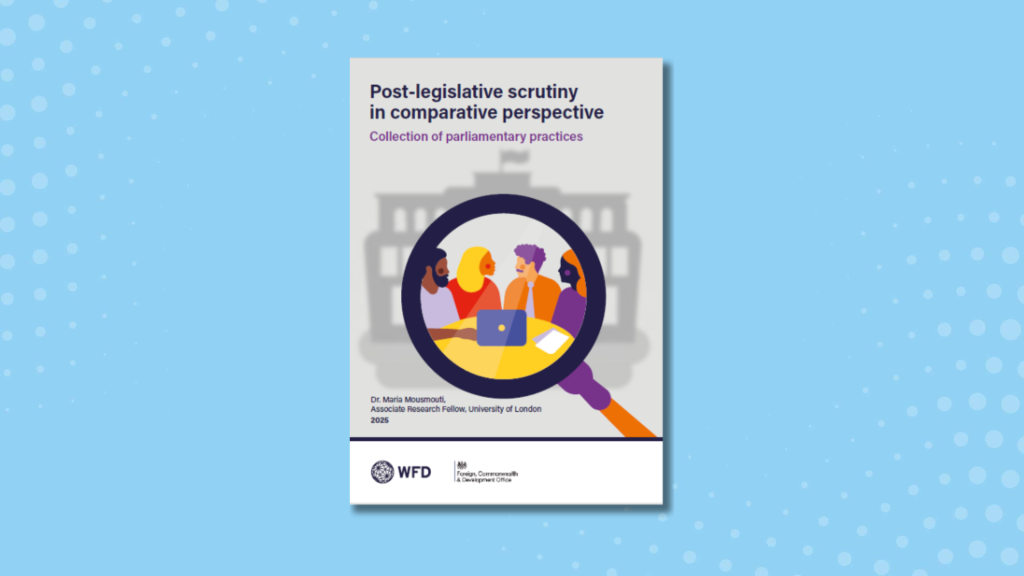Conducting a stakeholder consultation is a key moment in post-legislative scrutiny (PLS) activities. There are many ways to consult and collect information as part of PLS, from calls for written and oral evidence to field visits. In this PLS clinic, parliamentary experiences on consultation will be shared by three distinguished speakers.
The fourth clinic of the Post-Legislative Scrutiny (PLS) Community of Practice will focus on public consultation and participation.
Conducting a stakeholder consultation is a key moment in post-legislative scrutiny activities. Consultation allows experts, interested stakeholders and the public to provide information on how the legislation works out in practice. Consultation enables MPs to determine the measures required to upscale the impact of a piece of legislation and/or the work of government institutions in implementing legislation. It is good practice to notify stakeholders of the key questions on which the parliamentary Committee invites their feedback.
There are many ways to consult and collect information as part of PLS, such as public hearings, calls for written and oral evidence, expert meetings, field visits, focus groups, virtual chats, etc. A committee conducting PLS activities can employ a combination of these mechanisms that will allow the collection of the information and data required to answer the questions raised by PLS.
Through consultation, young people, underrepresented or disadvantaged groups can be accessed and motivated to express their views. Technology, social media, digital tools offer new opportunities to boost interaction with the community, communicate with groups that were previously out of reach, or connect with people in a context of conflict and war.
Parliamentary experiences on these topics will be shared by three distinguished speakers:
-
Dr Johnson Okoth Okello, Director of the Legislative Service of the Senate of Kenya;
-
Hannah Johnson, knowledge exchange lead in the Welsh Parliament / Senedd Cymru;
-
Danylo Bondar, Deputy Chair of the Secretariat to the Committee on Social Policy and Veterans' Rights in the Parliament of Ukraine.
The PLS Clinic will be chaired by Kakha Kuchava, former Speaker of the Parliament of Georgia.
PLS is the practice of monitoring the implementation and evaluating the impact of laws. The aim is to ensure that laws benefit citizens in the way originally intended by lawmakers.
We look forward to the opportunity to share and discuss with all participants joining the event.
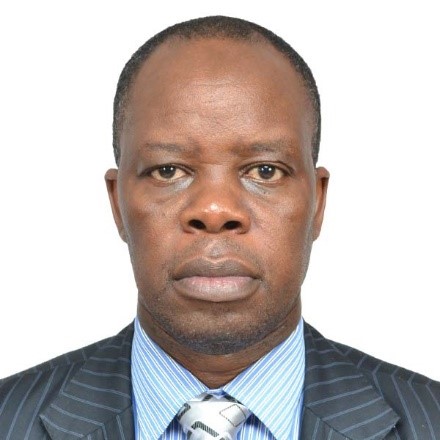
Dr Johnson Okoth Okello is the Director of the Legislative Service at the Senate of Kenya. He is an advocate at the High Court of Kenya. He has previously served as a State Counsel in the Office of the Attorney General, Legal Officer at the Kenya Law Reform Commission, a Lecturer at the Kenya School of Law and a Legal Sector specialist with the Financial and Legal Sector Reform Programme, Government of Kenya and World Bank Programme in Kenya. He serves as the Secretary-General of the Africa Colloquium for Legal Counsel Serving in Parliaments. He holds an MA in Advanced Legislative Studies (Legislative Drafting).
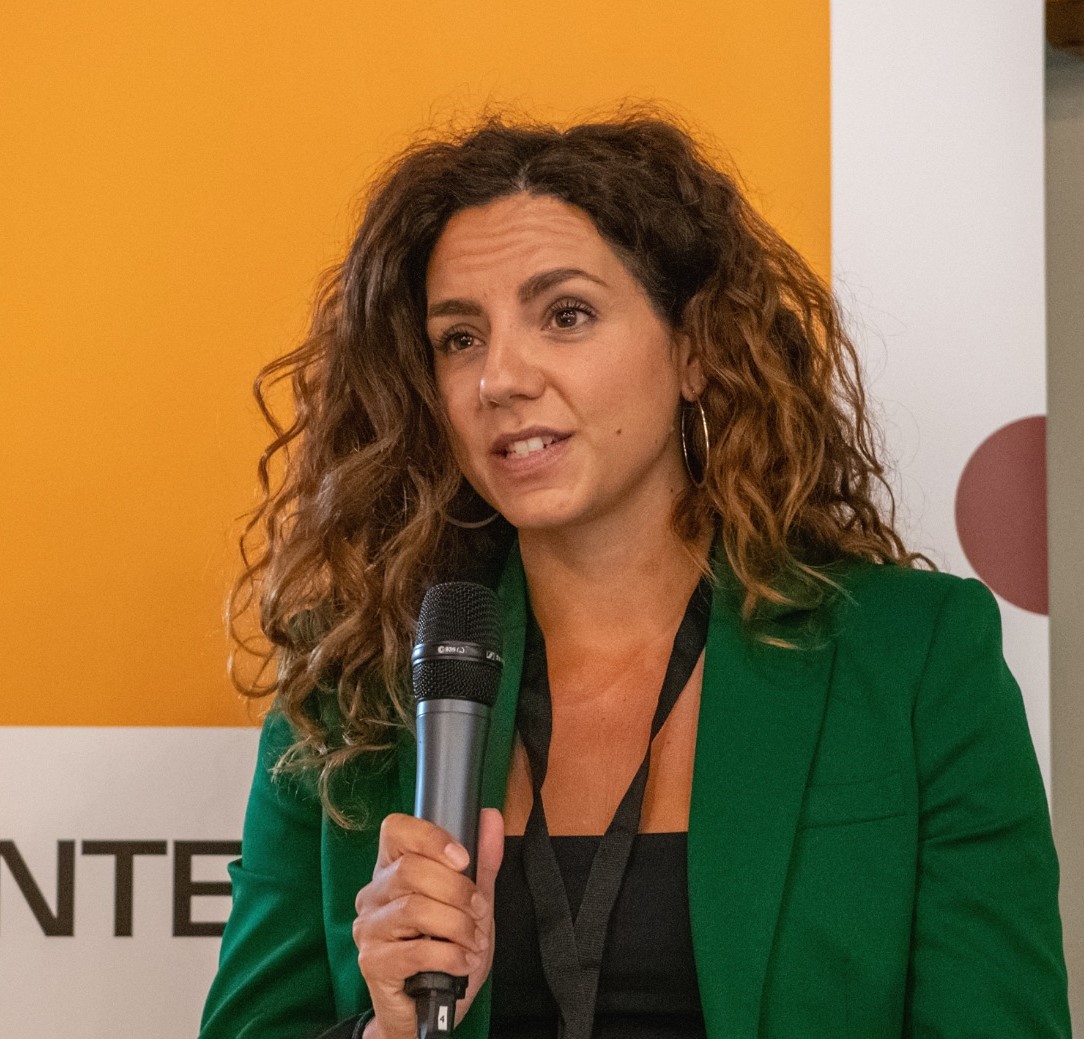
Hannah Johnson leads the knowledge exchange programme in the Welsh Parliament/Senedd Cymru. She is a senior gender adviser to the INTER-PARES parliamentary development project. Through UNDP, she recently completed an assignment with the National Assembly of Laos. Hannah has 13 years of experience working with parliaments around the world. She specialises in gender-sensitive parliaments, parliamentary research, committees, legislative scrutiny and oversight, and has an LLM in human rights law.
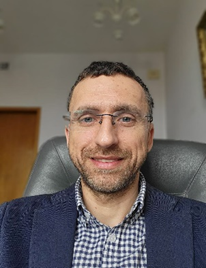
Danylo Bondar is the Deputy Chair of the Secretariat of the Committee on Social Policy and Veterans' Rights in the Parliament of Ukraine, the Verkhovna Rada of Ukraine. Since 2022, he is responsible for organizing the work related to the passage of draft laws aimed at adapting Ukrainian legislation to the provisions of the European Union acquis. Since 2018, he is a member of the Supervisory Board of the EU-ILO Project "Strengthening Labor Administration to Improve Working Conditions and Combat Undeclared Labor". He holds a Master of Law.
